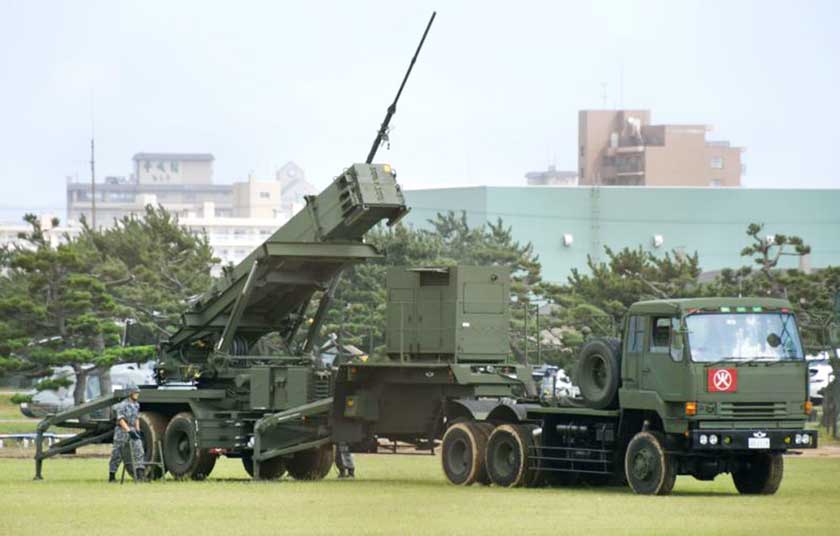
AP, Tokyo :
Japan on Tuesday moved a mobile missile-defense system on the northern island of Hokkaido to a base near recent North Korean missile flyover routes.
Defense Minister Itsunori Onodera said a Patriot Advanced Capability-3 interceptor unit was deployed at the Hakodate base on southern Hokkaido “as a precaution” as part of government preparations for a possible emergency.
The relocation came after a North Korean missile was test-fired last week and flew over southern Hokkaido and landed in the Pacific off the island’s east coast – the second flyover in less than a month.
The PAC-3 was brought from another base in Yakumo town on Hokkaido, about 80 kilometers (50 miles) northeast of Hakodate. The system has a range of about 20 kilometers (12 miles).
Four more of Japan’s 34 PAC-3 units, largely used to defend the capital region, were relocated to southwestern Japan recently after North Korea warned of sending missiles toward the U.S. territory of Guam.
Japan currently has a two-step missile defense system. First, Standard Missile-3 interceptors on Aegis destroyers in the Sea of Japan would attempt to shoot down missiles mid-flight. If that fails, surface-to-air PAC-3s would try to intercept them.
Japan’s Constitution, which limits the use of force to self-defense, only allows the military to shoot down missiles that are heading to Japan, or debris falling onto Japanese territory. Onodera has said a new security law passed in 2015 might allow it to shoot down a Guam-bound missile if it poses a critical security threat to Japan and its top ally, the United States.
The United States and South Korea and separately Russia together with China, carried out military drills in a show of force against North Korea, which has defied U.N. Security Council resolutions to conduct nuclear tests and ballistic missile tests.
Trump and Xi spoke on the phone days after Trump and his aides publicly discussed potential military action against North Korea. On Friday, while delivering an address at a military base outside of Washington, Trump said he was “more confident than ever that our options in addressing this threat are both effective and overwhelming.”
Trump is attending the annual United Nations General Assembly in New York this week, while Xi is not. North Korea’s nuclear threat is likely to loom large on the agenda.
The two leaders also discussed Trump’s coming China visit, the Xinhua News Agency said.
“Xi said China and the United States share extensive common interests and have seen sound momentum of exchanges and cooperation in various areas at present,” Xinhua said.
Xi called on both sides to work closely to ensure a fruitful trip and inject new impetus into the development of Sino-U.S. relations, the report said.
“The Chinese leader said he is happy to maintain communications with the U.S. leader on a regular basis over topics of mutual concern,” it said.
Trump will likely visit China in November as part of a trip that will take him to an ASEAN summit in the Philippines and an APEC summit in Vietnam.

